A Strong Legacy Gift Program Increases Future Funding
Invite donors to continue their positive impact for years to come.

AFP hosted The Art of the Legacy Ask webinar by Ligia Pena, CFRE, Global Legacy Manager at Greenpeace International, and Legacy and Fundraising Strategist with Globetrotting Fundraiser.
Ligia shared that, every day, we make between 25,000 and 35,000 decisions. Most of these decisions are subconscious, based on automatic or emotional responses, such as what to eat for dinner or what to wear on any given day. However, some of the decisions we make are logical, based on calculations and deeper thought. Fundraisers can use decision science such as anchoring or social proof to influence the thought process behind giving.
Heuristics are mental shortcuts that allow people to solve problems and make judgments quickly and efficiently. These rule-of-thumb strategies shorten decision-making time and allow people to function without constantly stopping to think about their next course of action. Ligia suggested formulating your communications in a way that allows people to “take a short-cut” in their decision making. Fundraisers should consider using images and specific terms to inspire emotions, generate awareness, and build a desire to support a non-profit with less decision-making effort.
While preparing for a major gift ask often follows a specific outline of steps to be successful, legacy fundraising may not be as clear-cut. The legacy fundraiser is in a constant state of subtle solicitation over a longer period of time. Humans don’t like to be reminded of our mortality. The conversations leading up to a legacy ask must center on determining the donor’s goals and how those goals relate to the organization’s mission.
Ligia stated that developing a solid legacy gift program is a marathon, not a sprint. Developing a relationship with a donor is critical for a legacy ask. Asking the donor specific questions, such as why the donor loves the organization they wish to support, and what he/she hopes to accomplish in the future with their legacy gift is a good start. Listening to the donor’s answers to these types of questions is critical to inspire donors to think about how their personal story connects with the organization’s mission.
While legacy giving may be a completely different mindset from other types of giving, a strong legacy program can bring great value to an organization for years to come.
Laura Fish with UWM was the lucky winner of the book Inside the Mind of the Bequest Donor by Dr. Russel James III, which was discussed during the webinar.
Submitted by Gwen Griffin, Executive Director, Old World Foundation.
